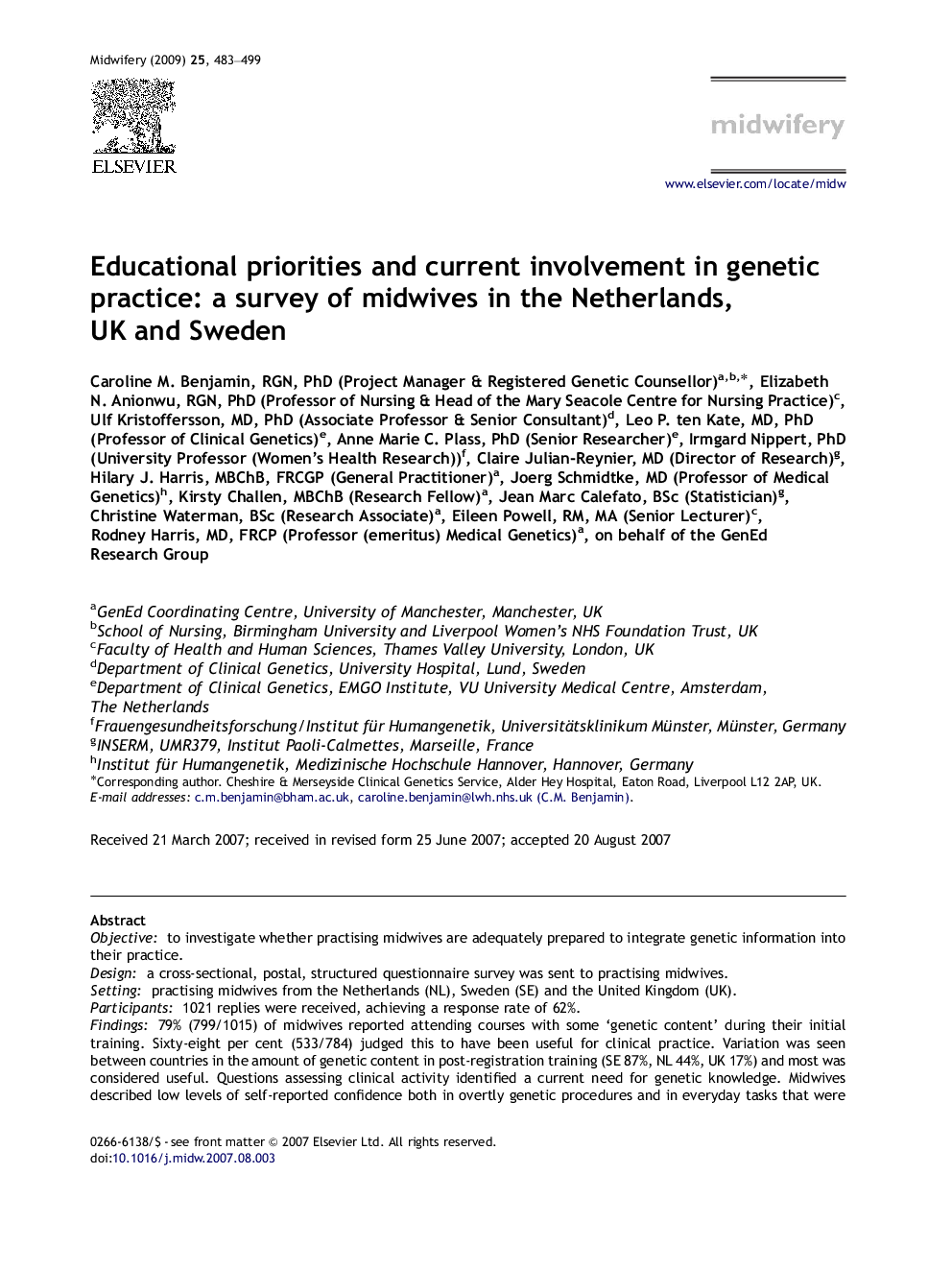| Article ID | Journal | Published Year | Pages | File Type |
|---|---|---|---|---|
| 1085348 | Midwifery | 2009 | 17 Pages |
Objectiveto investigate whether practising midwives are adequately prepared to integrate genetic information into their practice.Designa cross-sectional, postal, structured questionnaire survey was sent to practising midwives.Settingpractising midwives from the Netherlands (NL), Sweden (SE) and the United Kingdom (UK).Participants1021 replies were received, achieving a response rate of 62%.Findings79% (799/1015) of midwives reported attending courses with some ‘genetic content’ during their initial training. Sixty-eight per cent (533/784) judged this to have been useful for clinical practice. Variation was seen between countries in the amount of genetic content in post-registration training (SE 87%, NL 44%, UK 17%) and most was considered useful. Questions assessing clinical activity identified a current need for genetic knowledge. Midwives described low levels of self-reported confidence both in overtly genetic procedures and in everyday tasks that were underpinned by genetic knowledge. For eight of the 12 procedures, fewer than 20% of midwives considered themselves to be confident. Differences were apparent between countries. Midwives identified psychosocial, screening and risk assessment aspects of genetic education as being important to them, rather than technical aspects or genetic science.Conclusionsgiven the low reported confidence with genetic issues in clinical practice, it is essential that this is addressed in terms of the amount, content and targeting of genetic education. This is especially important to ensure the success of national antenatal and baby screening programmes. The results of this study suggest that midwives would welcome further training in genetics, addressing genetic topics most relevant to their clinical practice.
